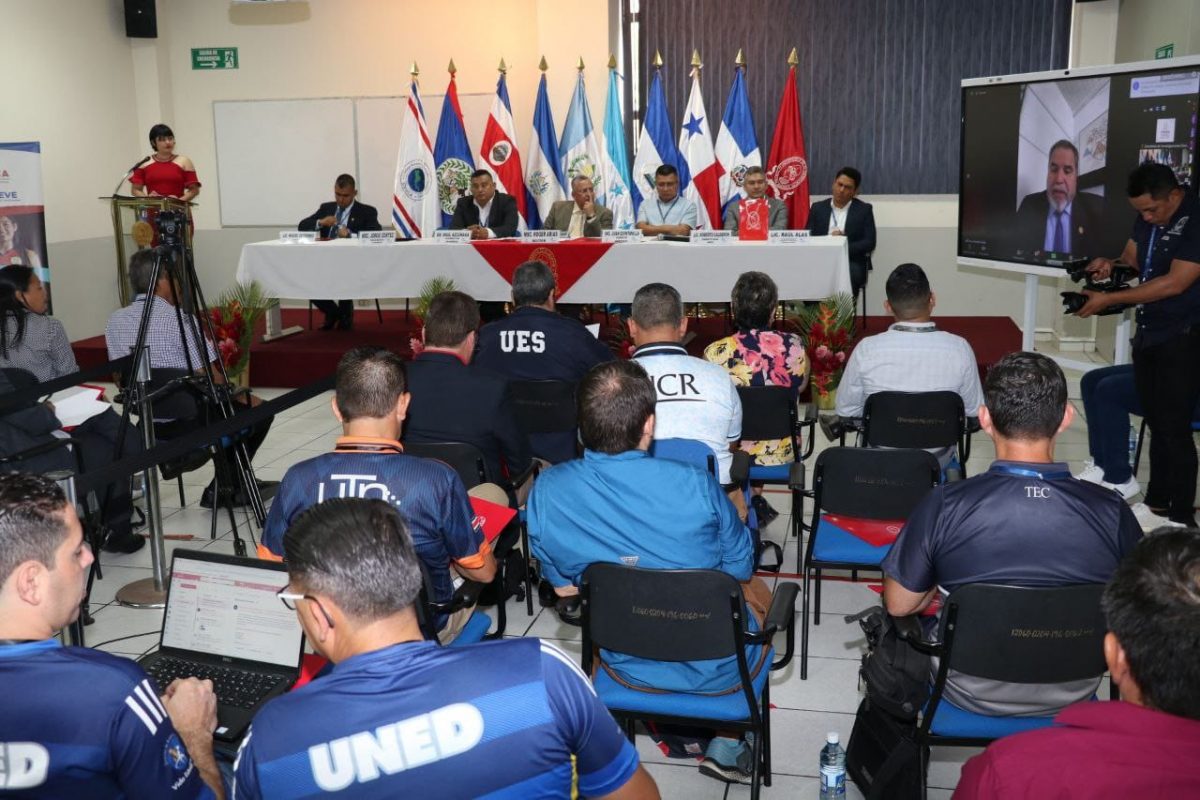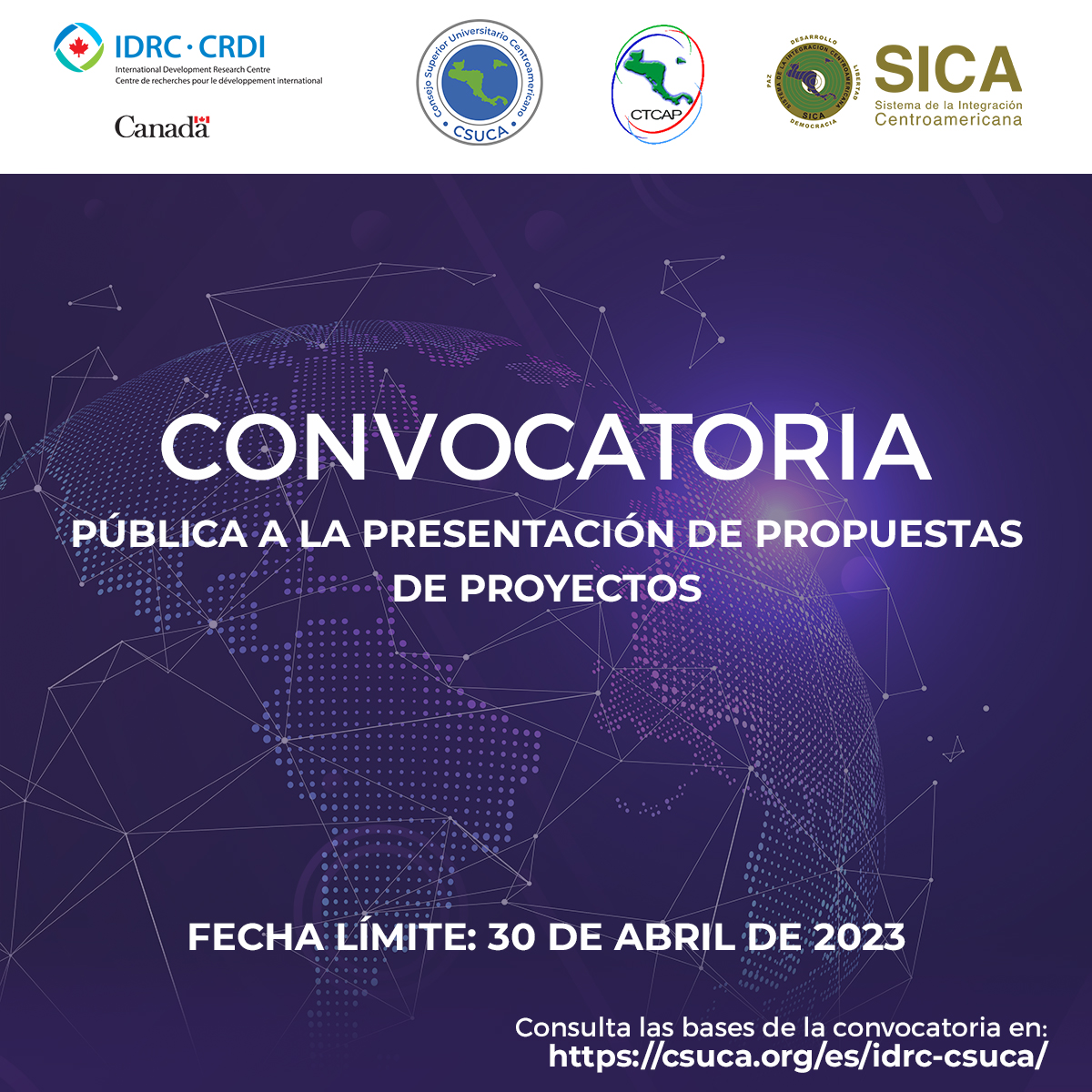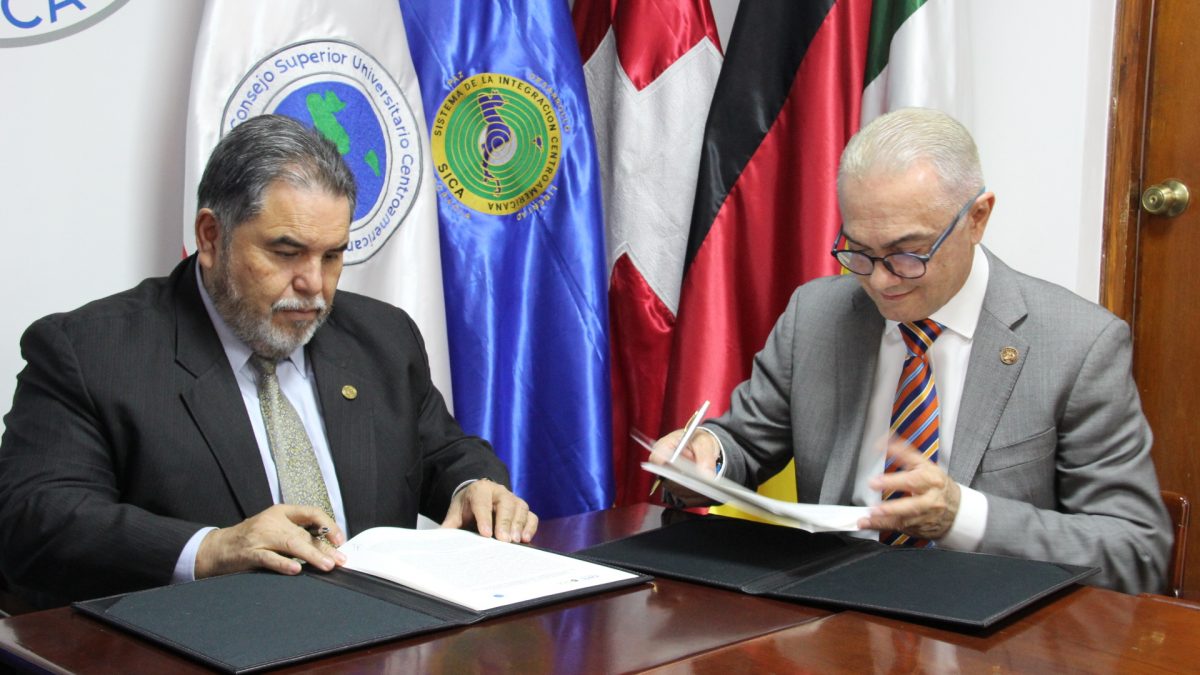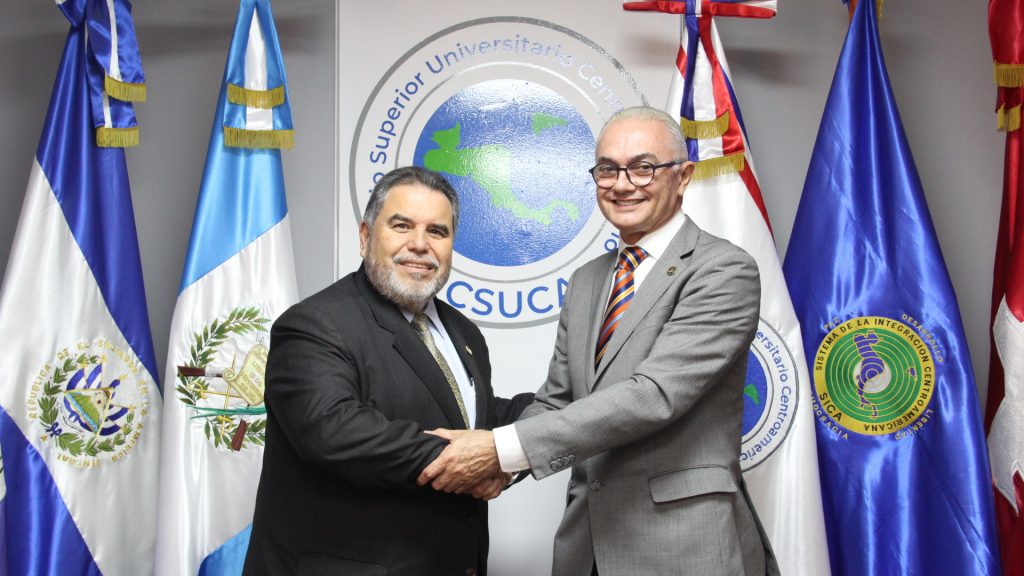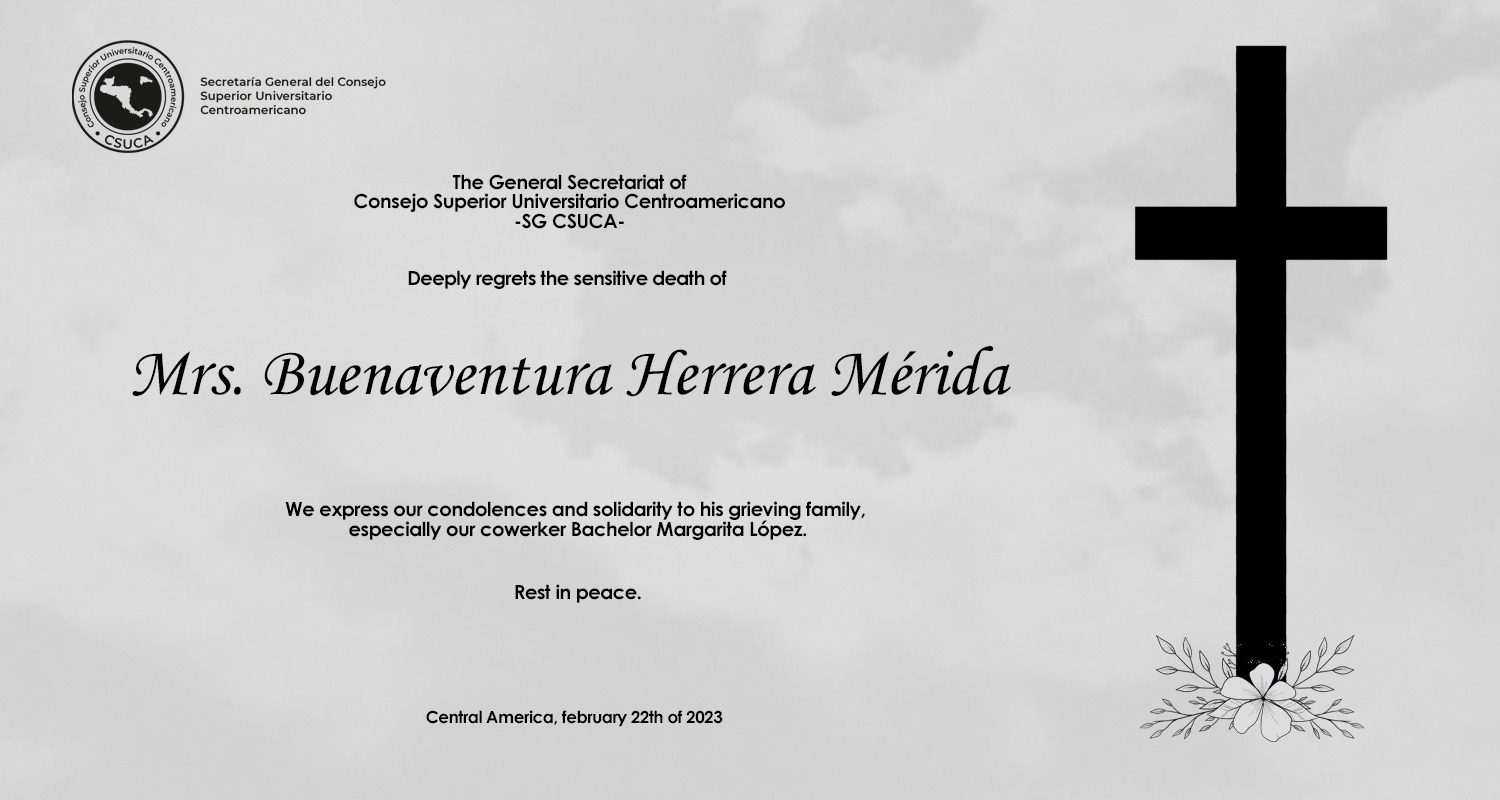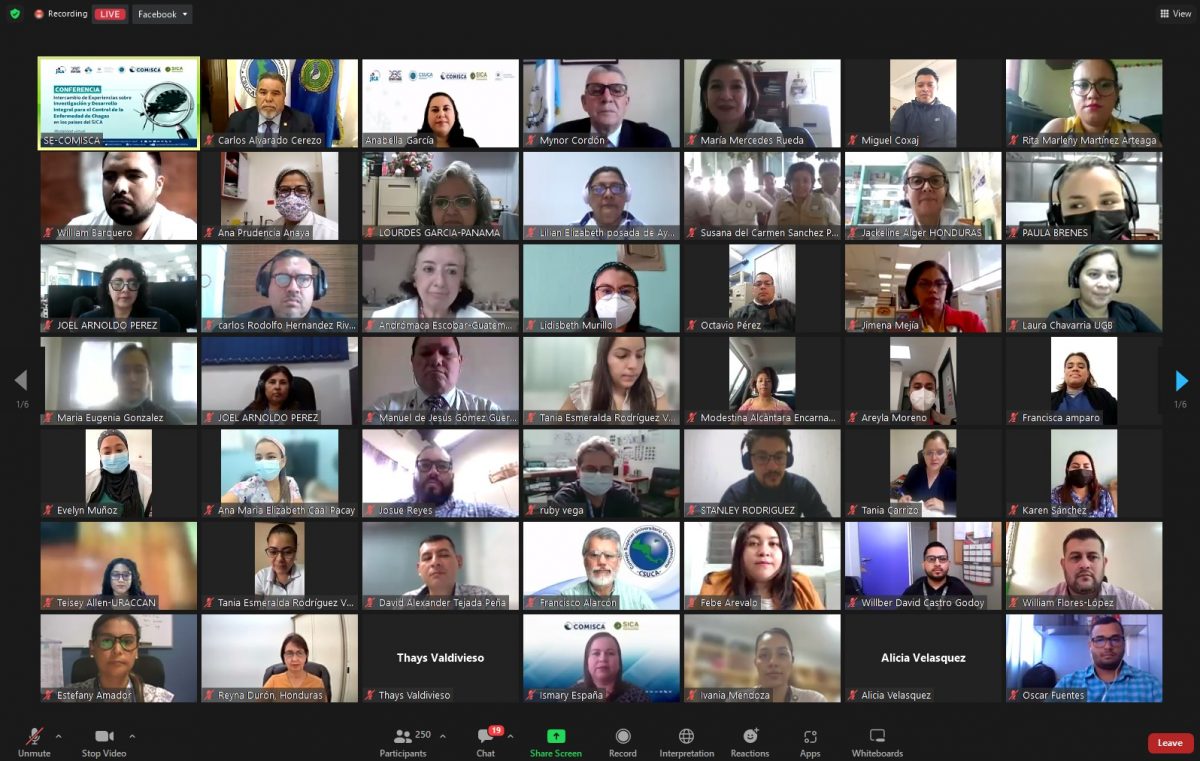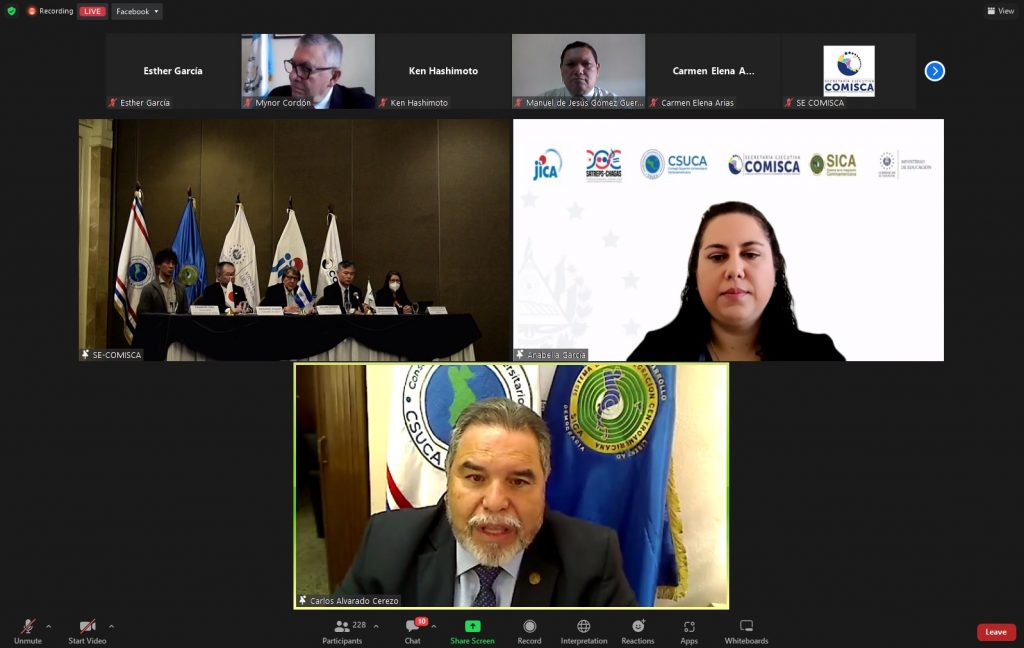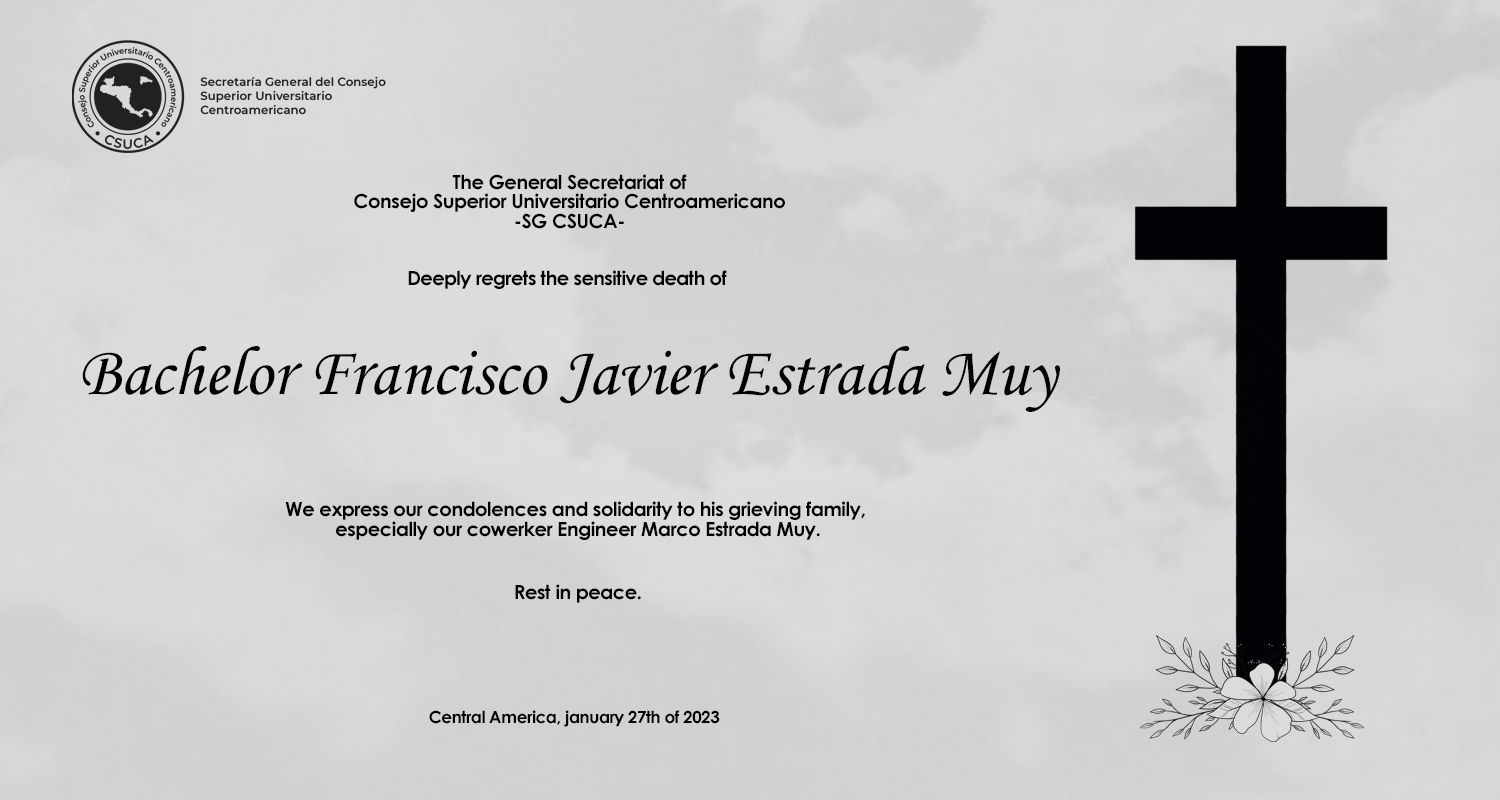Centroamérica 15 de marzo, 2023
Los días 15 y 16 de marzo dan lugar al desarrollo del segundo congresillo técnico de la organización de la octava edición de los Juegos Deportivos Universitarios Centroamericanos -JUDUCA- a desarrollarse en El Salvador, durante el mes de julio del 2023.
Cada dos años la Confederación Universitaria Centroamericana celebra los JUDUCA, siendo una competencia multideportiva bienal que se realiza con el objetivo común de promover el deporte y así contribuir al fortalecimiento de la integración, la solidaridad y la paz entre las universidades miembros de CSUCA. Juegos organizados por el Consejo Regional de Vida Estudiantil -CONREVE-, órgano del Consejo Superior Universitario Centroamericano -CSUCA-.
“Los JUDUCA se constituyen en esa oportunidad de verificar nuestras comunidades estudiantiles, más que una competencia es un reencuentro de nuestros jóvenes, así como la oportunidad de construir la unidad que como región debemos tener” mencionó Roger Arias, Rector de la Universidad de El Salvador, brindando la bienvenida a las distintas comisiones que participan en modalidad presencial y virtual.
Indicando la importancia de la preparación que se genera mediante el segundo congresillo, previo a la celebración de los Juegos Deportivos Universitarios Centroamericanos, Carlos Alvarado, Secretario General de CSUCA expresó “Estos juegos buscan desarrollar actividades de promoción, participación, a través de una integración importante, sustentado en valores educativos y culturales que contribuyen a su formación educacional, y que mejor que desarrollarlos en el marco del 75 aniversario de CSUCA”.
Debido a la crisis sanitaria que se vivió en el mundo entero, la VIII edición de los JUDUCA no se pudo realizar durante el año 2020, tal y como se tenía previsto. Por tal motivo, desde el 2022, la Universidad de El Salvador, junto a autoridades de CSUCA, reconociendo el trabajo de Jorge Cortéz, Presidente de CONREVE, Miguel Gutiérrez, Secretario Adjunto para Asuntos Estudiantiles de CSUCA y el Consejo Regional de Vida Estudiantil, han desempeñado su esfuerzo con el fin de retomar esta actividad que permite el desarrollo de los estudiantes de las universidades públicas de los países Belice, Guatemala, El Salvador, Honduras, Nicaragua, Costa Rica, Panamá y República Dominicana.
“Es un hecho histórico que la Universidad de El Salvador vuelva a ser sede de los JUDUCA, con la representación de las 24 universidades que conforman el CSUCA” señaló Jorge Cortez, Presidente de CONREVE, haciendo mención que estos juegos son una de las mejores representaciones que están dando desde el Sistema Regional de Vida Estudiantil -SIREVE- y CONREVE en conmemoración al 75 aniversario de CSUCA.
La Confederación Universitaria Centroamericana, fue creada el 20 de septiembre de 1948, conmemorando en el año 2023 su 75 aniversario, siendo la primera organización de integración regional en Centroamérica.
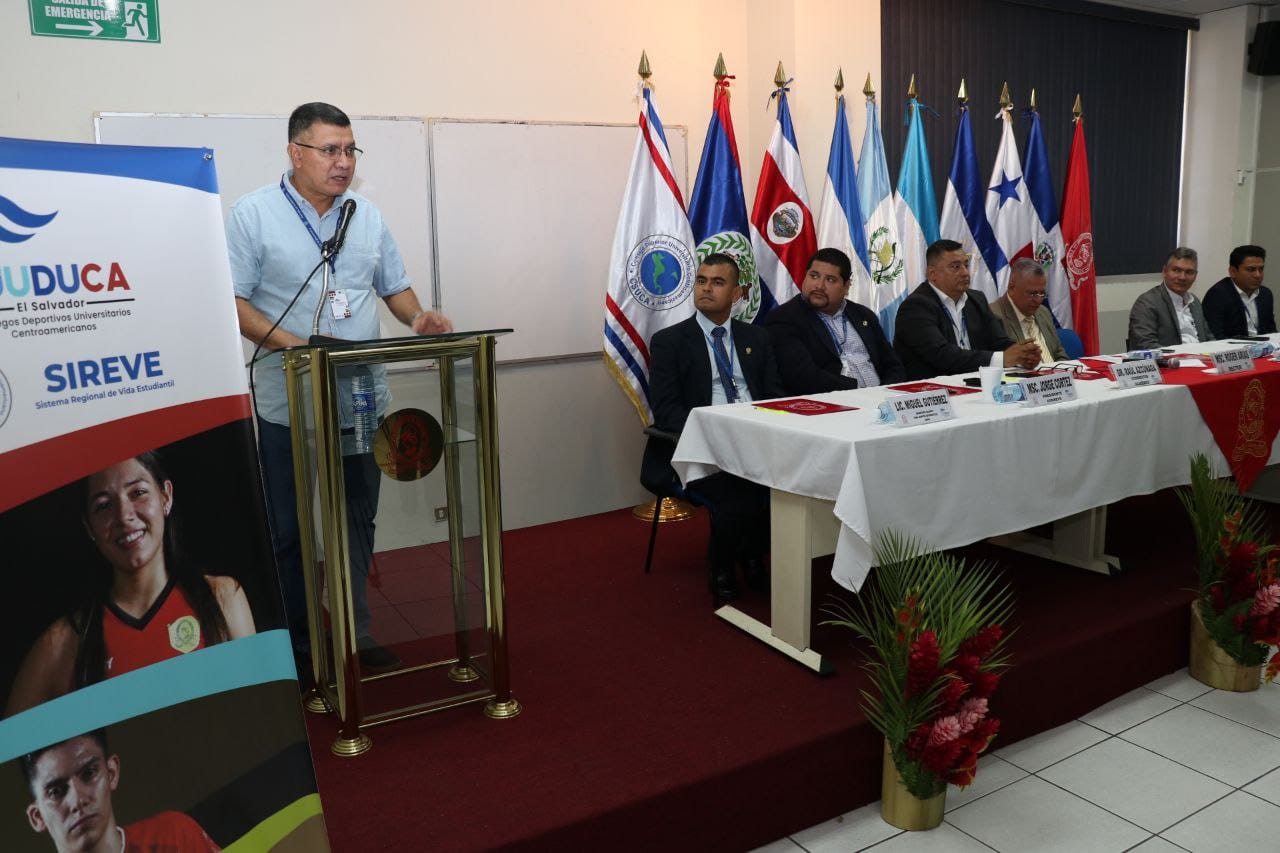
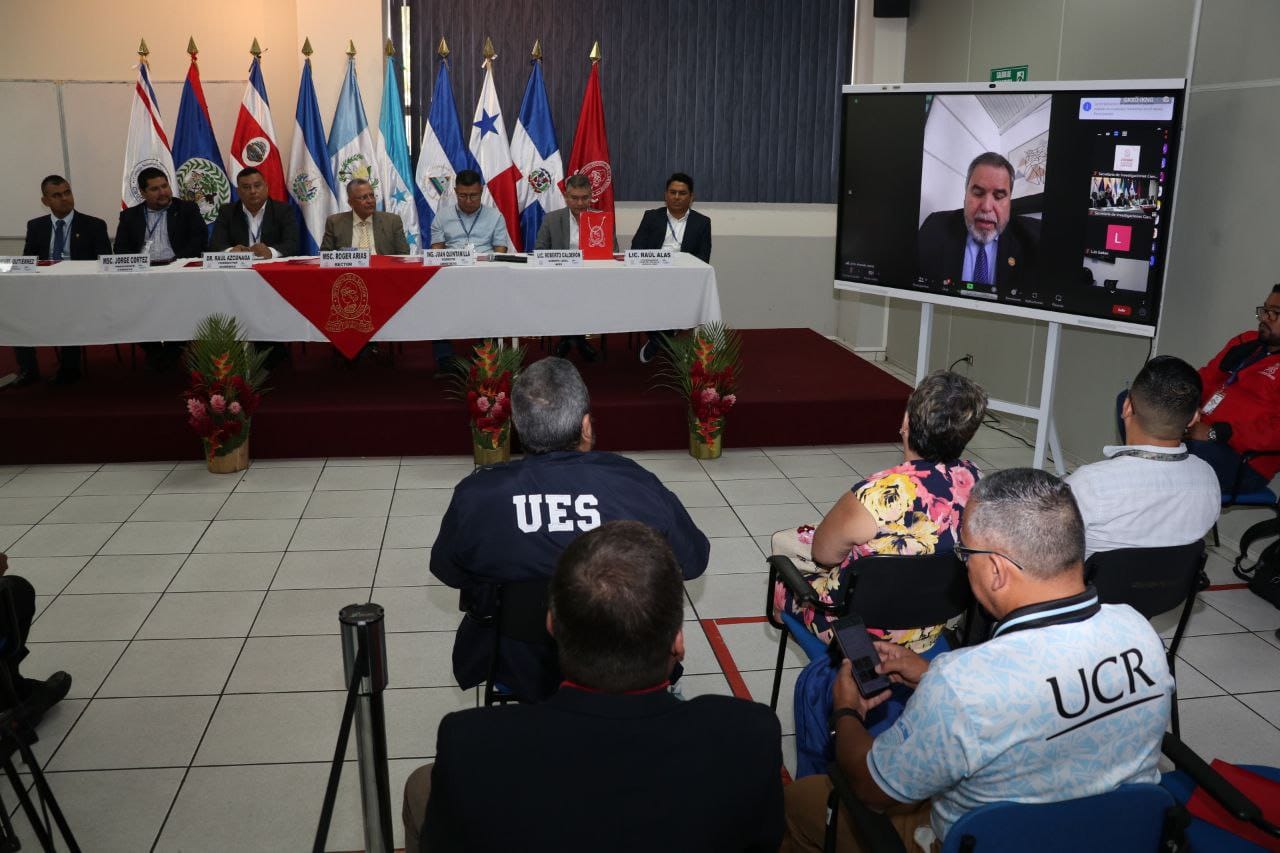
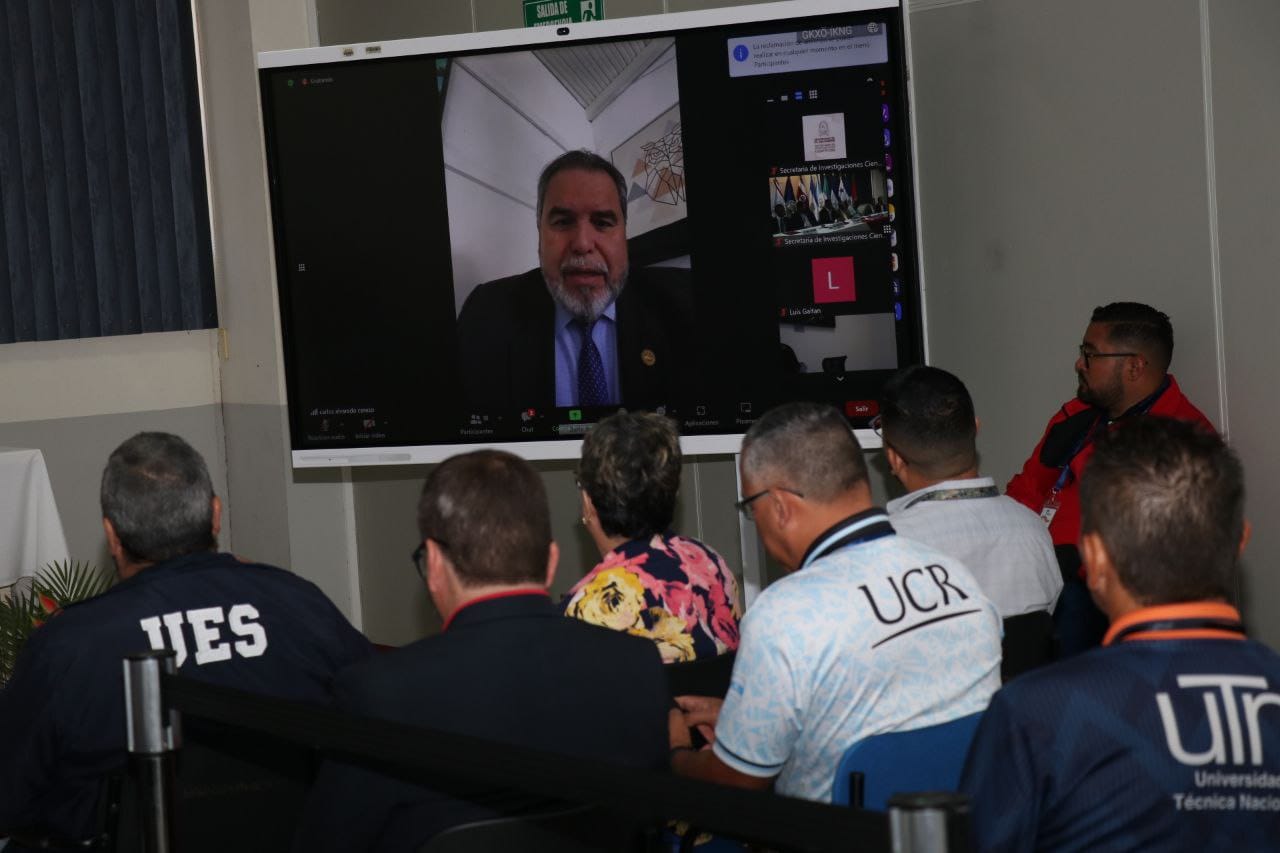
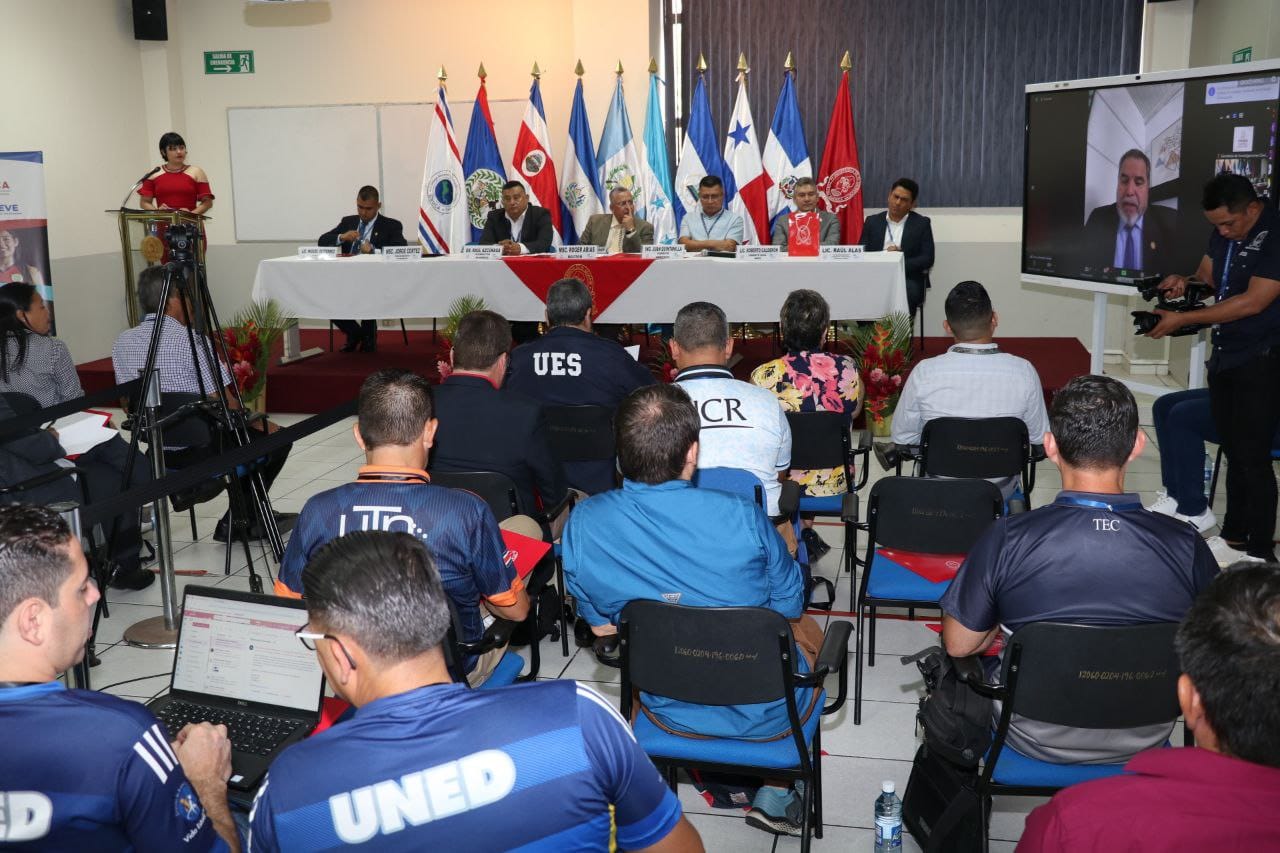
Image shared by the University of El Salvador (UES).





